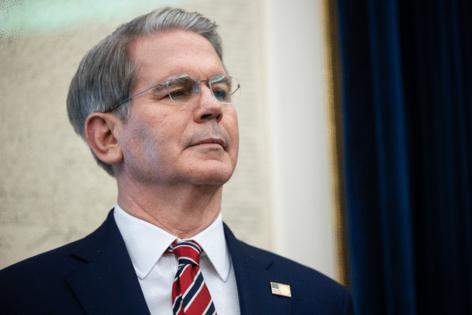South Korea weighs painful concessions to avert Trump's tariffs
Published in News & Features
South Korea will hold high-level trade talks with the U.S. on July 25, accelerating efforts to head off sweeping tariffs by weighing politically sensitive concessions that could reshape ties between the two allies.
Finance Minister Koo Yoon-cheol and Trade Minister Yeo Han-koo will meet their U.S. counterparts, Treasury Secretary Scott Bessent and Trade Representative Jamieson Greer, in a so-called “2+2” format in Washington, Koo told reporters Tuesday.
Seoul is preparing for a diplomatic push in the final days before the Aug. 1 deadline when President Donald Trump’s across-the-board 25% tariff is set to take effect. South Korea’s foreign and industry ministers are also expected to travel to the US separately as early as this week, while National Security Adviser Wi Sung-lac recently departed for the U.S. on his second trip in under two weeks.
Trade Minister Yeo has previously addressed the difficult trade-offs required to protect South Korea’s broader strategic and economic interests. While no formal offer has been extended, agricultural concessions have emerged as one of the few options under consideration. Past efforts to open the beef market sparked nationwide protests, and any shift on rice could face even stiffer resistance.
“We must make strategic judgments — protect what we must, but also consider what we can offer in the broader context of the talks,” Yeo told reporters last week.
The outcome of the negotiations carries high stakes for South Korea, where exports made up more than 40% of GDP last year. As a key exporter of semiconductors, smartphones, automobiles, and batteries, any disruption to Korean shipments threatens to reverberate across global supply chains. South Korea also holds the largest trade surplus with the US, bolstered by surging exports to the world’s largest economy.
To boost its bargaining position, Seoul is also exploring participation in a US-backed Alaskan gas project, potential cooperation in shipbuilding, industrial revitalization, and regulatory changes to improve access for U.S. tech firms.
Defense burden-sharing is another sensitive area. Trump has long pushed allies to increase their financial contributions to hosting American troops, and a modest boost in Korea’s share could help reduce friction in the broader talks. So far, Lee has advocated for sticking with a five-year cost-sharing deal reached last October, though his team has had discussions with U.S. counterparts on the topic.
Still, the priority is protecting industrial heavyweights. Autos account for more than a quarter of Korea’s exports to the U.S., and the nation’s carmaker Hyundai Motor Co. faces elevated risks due to its reliance on domestic production despite recent U.S. investment pledges.
Now, Trump is also escalating the pressure on sectors previously considered less exposed: semiconductors and pharmaceuticals. The president has indicated that tariffs on both drugs and chips could take effect as early as the start of August. Those measures may be imposed alongside the higher reciprocal tariffs.
The scope of these new duties could be wide. Korean pharmaceutical firms such as Celltrion Inc. and SK Biopharmaceuticals Co. are among those expressing concerns over the measure, while the proposed chip duties might impact not only components but also finished products including smartphones and laptops from Samsung Electronics Co.
Although some analysts expect Washington may ultimately favor investment incentives or import quotas in these sectors, the risk of outright tariffs is growing. Many Korean firms have built joint ventures in the U.S., particularly in cars and batteries, but their core supply chains remain rooted at home.
After two trips to Washington since June, Trade Minister Yeo has emphasized that the talks shouldn’t be viewed as a zero-sum game. He’s advocating for a “positive-sum” outcome, in which both sides walk away with mutual gains through deeper industrial and regulatory cooperation.
But skepticism is mounting as time runs short and coordination among Korean ministries remains fragmented.
“From what we’re seeing, this is less of a negotiation and more of a one-sided demand,” said Park Sanghyun, an economist at iM Securities. “At best, we might be able to shave the proposed 25% rate down to something below 20%, but the idea of avoiding sectoral tariffs altogether seems unlikely.”
©2025 Bloomberg L.P. Visit bloomberg.com. Distributed by Tribune Content Agency, LLC.







Comments